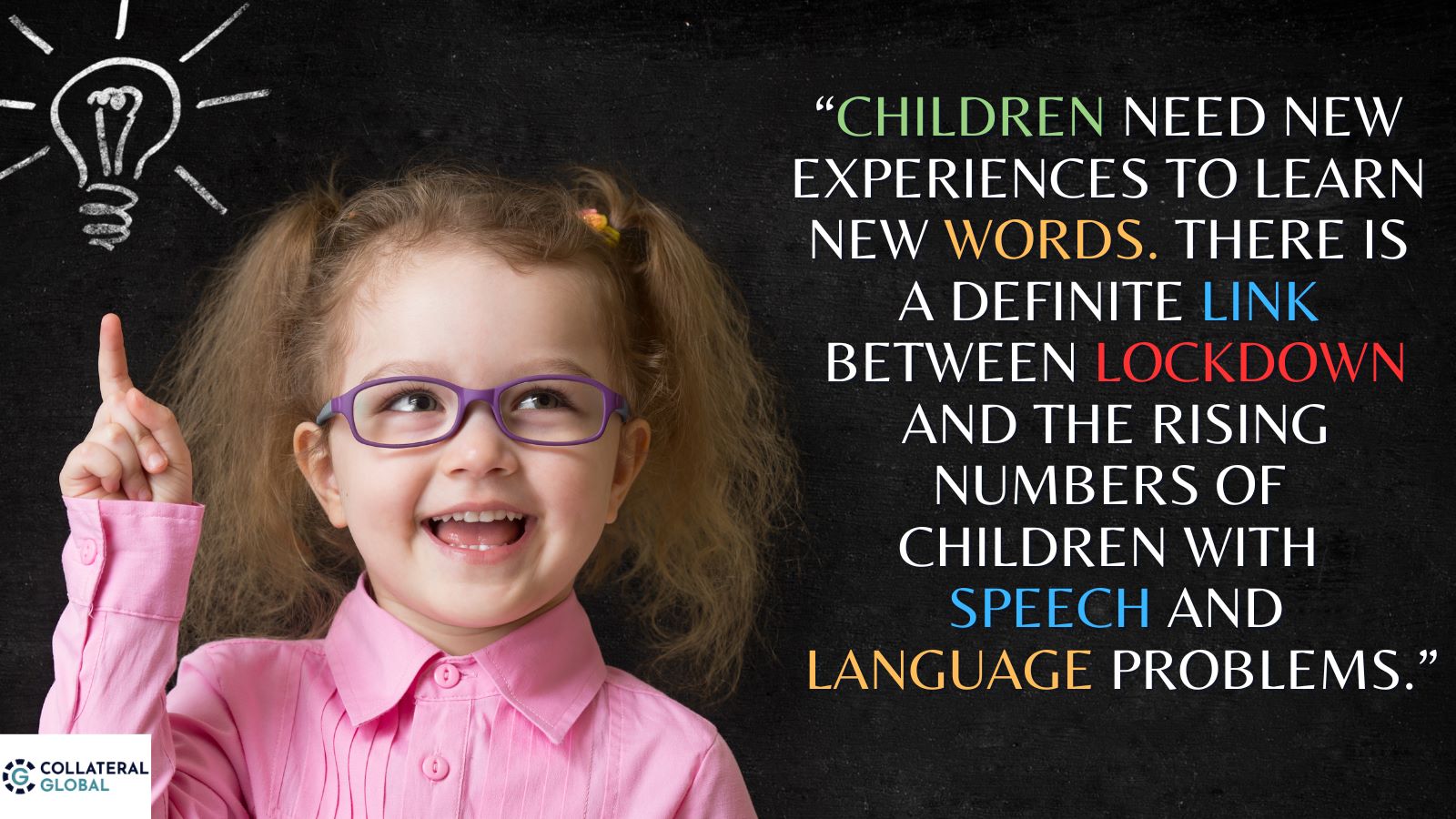Record levels of speech and language problems among youngsters linked to lockdown
Almost two million children in the UK are struggling with speech and language problems – a rise of more than a quarter since Covid lockdown measures were introduced.

Currently almost one in five children – 1.9 million – are struggling with speech and language problems. This has risen by 200,000 each year since 2021. The increase is being blamed on the ongoing impact of lockdown measures which led to widespread mask wearing and reduced socialisation.
Experts say the cost of living crisis is compounding the problem with children less likely to have different experiences needed to help them learn new words. The figures come as educational experts express fears for ‘lockdown babies’ who will be at risk of social and emotional difficulties as they start school this month.
Jane Harris, CEO of the children’s communication charity, Speech and Language UK, told CG:
“Children need new experiences to learn new words. There is a definite link between lockdown and the rising numbers of children with speech and language problems and also the impact of the cost of living crisis as working parents and schools are less able to afford trips and experiences.”
She said she fears the numbers of children experiencing speech and language problems, drawn from a survey of 1,000 teachers by the charity, will continue to rise. She added:
“This really is a dreadful situation that is not being taken seriously enough. The factors that led to these problems among children are still there, and while the problems are reversible with the right support, basic training and support in schools and nurseries is wholly inadequate.”
Speech and language specialist Sandra Chappell said:
“Social interaction is the foundation for speech and language development and so many parents were working from home during lockdown, resorting to using screens instead of playing with children or going out. Every hour of screen time has a detrimental impact on speech and language which develops with a back and forth interaction. Children couldn’t go to libraries, play areas and as a consequence many have a limited range of vocabulary today.”
She added:
“If you are struggling to talk, it is hard to make friends. This affects your mental health and this can have a lasting impact on your academic success and employment prospects that can last for decades.”
Children with speech and language problems are six times more likely to fail an English test aged 11 and over ten times more likely to fail a maths test at the same age. They are also two times more likely to have a mental health problem and twice as likely to be unemployed in later life.
As the term started this month teachers were reporting a rise in the numbers of reception children unable to take turns, follow routines, listen in class, biting one another, throwing things and spitting. One teacher said: “They don’t have the vocabulary to express what they are feeling.”
